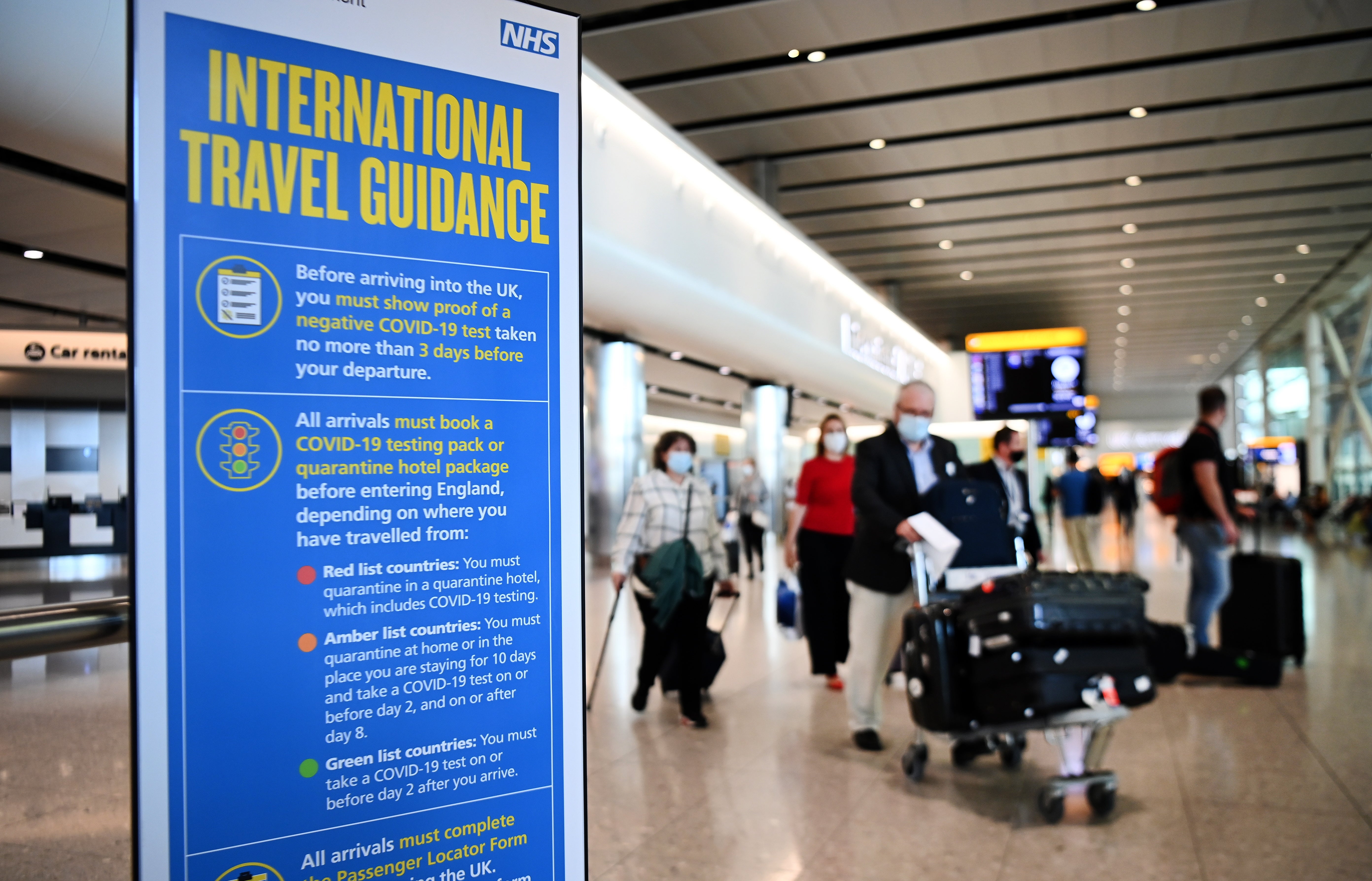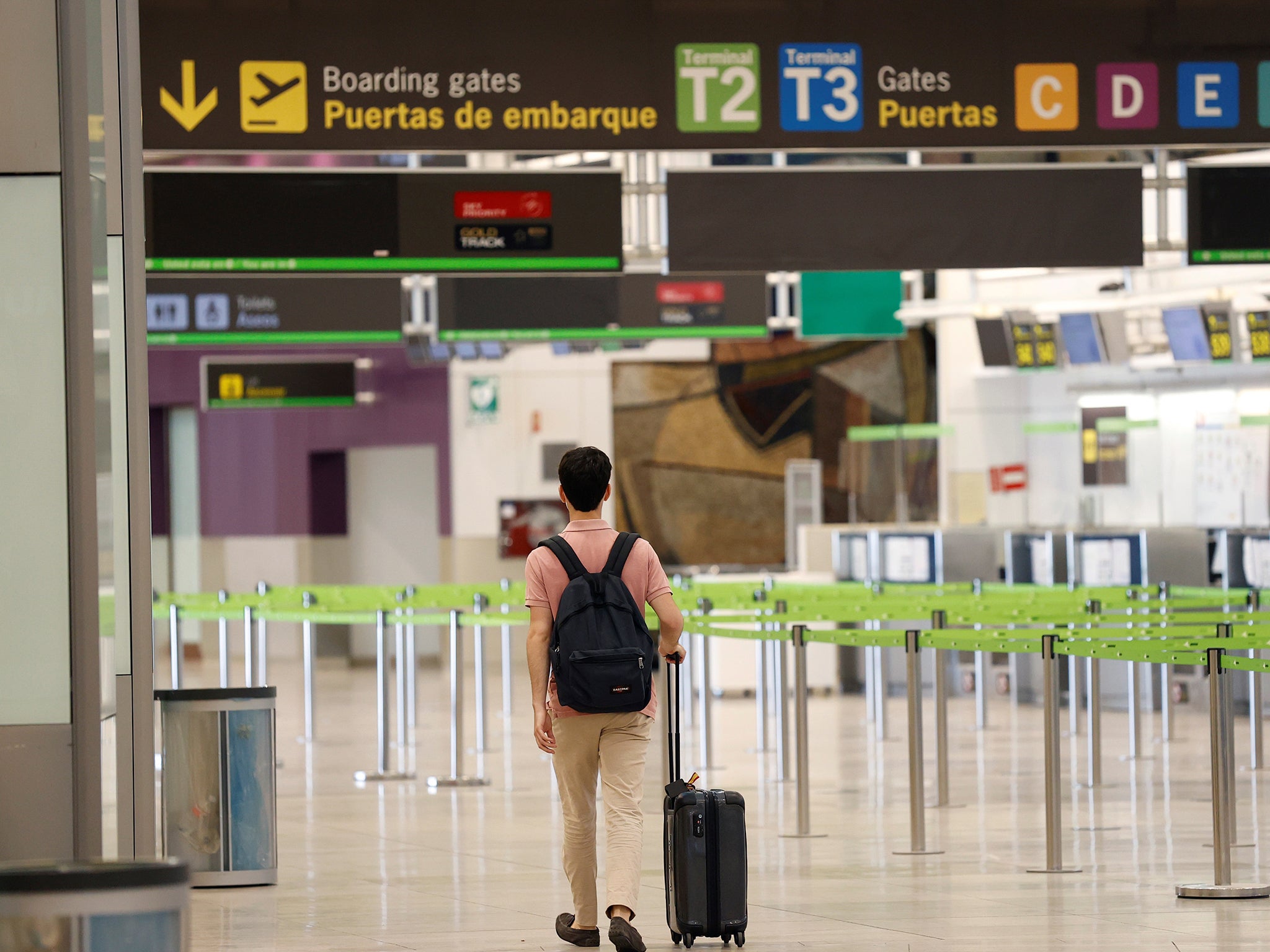Will my friends have to pay the price for going Dutch?
Simon Calder answers your questions on quarantine rules, passport mix-ups, flight transfers and Schengen restrictions


Q I have friends who are returning from New Zealand via Singapore and Amsterdam. They will only be in transit lounges during changes. They’ve both been double vaccinated in NZ – they were trapped there for 18 months. Do they need to isolate when they arrive?
Jim L
A I imagine your friends have booked via Amsterdam because they want to arrive in one of the many airports in Britain that is easier to access from the Dutch capital than from London – eg Humberside, Bristol or Birmingham. Unfortunately, booking via the Netherlands is an expensive mistake.
New Zealand and Singapore are, unlike almost all of the rest of the world, on the UK’s green list. No quarantine is required on arrival. But the rules apply to the highest risk level location on the journey, and that is the Netherlands – on the amber list.
The UK government seems to have forgotten its recent pledge to organise “safe transfers” through hubs like Amsterdam. As a result, even an hour between flights at Schiphol airport is enough to consign them to 10 days in self-isolation on arrival, plus a second expensive PCR test.
I don’t know what the amendment fee would be for your friends switching to a direct Singapore-London Heathrow flight, but I suggest it would be a wise investment. If they were wrongly advised, eg by a New Zealand travel agent, that it would be a quarantine-free route, then the firm should fix the problem.
Even though they have been double jabbed in New Zealand, their vaccinations will count for nothing in the UK. Swerving amber list quarantine (from 19 July) is available only to people who were vaccinated in the UK.

Q We’ve seen your article about Jet2 incorrectly turning away passengers at Leeds Bradford airport. This happened to us last Thursday. We had to take the ferry from Liverpool to Belfast to get emergency passports and then pay for new flights to Ibiza. My boyfriend’s passport was issued in October 2011. How is best to pursue a claim?
Hannah W
A My article was about Jet2 misinterpreting the new passport rules in 2021 for British holidaymakers heading for European Union destinations, and as a result inadvertently denying boarding to some passengers who were perfectly entitled to travel.
The background: since the end of the Brexit transition on 31 December 2020, UK visitors to the Schengen area (incorporating most of the European Union, including Italy, Spain, France and Greece) have faced strict rules on passport validity. British passports are regarded as expired once they have been valid for 10 years, even though the expiry date shown in the document is significantly later.
The European bloc requires arriving travellers to have at least three months of validity (by its reckoning) on passports remaining after the intended date of leaving the Schengen area. Unfortunately the UK government falsely asserts that travellers need at least six months left on their passport to travel to Europe. Jet2 was following this incorrect statement of the law. After I pointed this out, to its credit the company apologised to the affected passengers and told its staff about the correct position.
There may be cases, including yours, that have still not been resolved. It all turns on the issue date in October 2011 of your boyfriend’s passport and your intended date of return. For example, If you were planning on staying a week, returning on 8 July, then if the passport was issued on or after 8 October 2011 (and was therefore regarded as expiring on that date in 2021), then you will have a case and can take it up with Jet2 customer service.
The government continues to insist: “Our simple message is that UK nationals should have six months’ validity on their passport to travel to Europe.”
Simple it may be, but it is also wrong, and will cause more upset to holiday plans and expense to travel firms who follow it.

Q Could you help me with a flight transfer query in Covid times? Can you fly from one amber country to the UK to fly immediately to another amber country from the same airport, even if you have to go through passport control to check in again?
Or, if I came in on 12 July, say, from an amber, can I leave to fly on somewhere else on 14 July?
Kelly S
A Both of these are feasible for arrivals in England, but a same-day connection is cheaper and easier. That applies regardless of whether you stay “airside” and simply connect from one flight to another at the same airport – or go “landside” (ie through passport control”) to check in again, as you indicate you will have to do. This suggests that one or both flights are on budget airlines. So long as you are leaving on the same day as you arrive, I reckon you could even go to a completely different airport/ferry port/international railway station.
You will still need to take a test before departure to the UK and complete a passenger locator form. This maddening online document is tricky to navigate but will allow you to say that you intend to leave the UK on the same day as you arrive. Bizarrely, when you get to the question “What are your travel plans?” you must tick the box marked “I plan to stay in the UK”. Don’t worry, it won’t come back to bite you.
Later you get a chance to say you are “Transiting landside in the UK and departing through England”. This allows you to claim exemption from the post-arrival tests you would otherwise have to undertake.
You can equally stay for a couple of days in the UK, but that would require you to pre-book a post-arrival test, which is an expensive faff. If you decide to do this, I recommend taking the test as soon as you arrive and be done with it; I paid £69 for a recent test at Heathrow airport.

Q For 14 years my wife and I have spent the maximum days we can in Spain to be with our children and four granddaughters, who live there. We were there on 1 January this year when Brexit happened. From then until 30 June we spent 70 days there, during two separate trips.
If we return to Spain on 8 October, can we stay until 6 January 2022, ie 90 days? Are we then forbidden to return until 90 days from 6 January? I have tried government websites, British consulates and the Spanish embassy in London, all to no avail. It’s a total fog of misinformation.
Bob H
A Unfortunately, Bob, I fear it is not a total fog of misinformation – because that might give some leeway. In fact the rules for visiting the Schengen area from third countries (as the UK decided to become) are all too clear.
In any 180 days, you can stay for a maximum of 90 days. The clock starts ticking when you enter a Schengen nation such as Spain. When you leave, your record starts to be cleaned, one day at a time. By the time you reach 8 October, you will have created a window of over 90 days, which means that you can begin again with no obstacle to a fresh 90-day stay.
I calculate that you can stay until 5 January; you must count the day of arrival and departure in your total of 90. After that? You are unable to visit Spain or anywhere else in the Schengen area (which includes most EU countries plus Iceland, Norway, Switzerland and plucky Liechtenstein) for a further 90 days, which I reckon takes you to 5 April.
From Wednesday 6 April, you can go back into the Schengen area and stay up to and including 4 June. Then the restrictions start to bite again...
I hope that, when people voted to end free movement, they appreciated that it would cut both ways. At least we have blue passports – though we were at liberty to introduce those at any time during our membership of the European Union.
Good luck.
Email your questions to s@hols.tv or tweet @simoncalder
Join our commenting forum
Join thought-provoking conversations, follow other Independent readers and see their replies
Comments
Bookmark popover
Removed from bookmarks